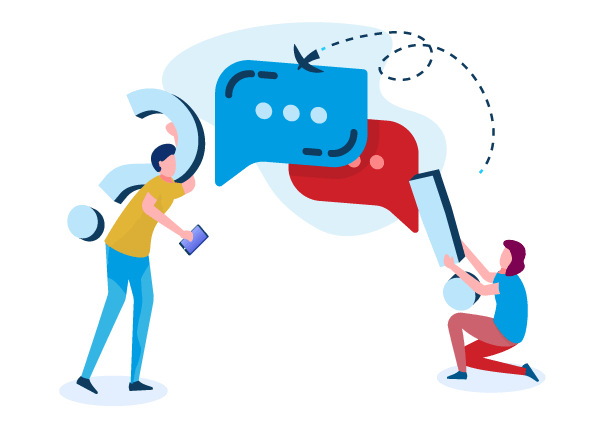Home >
What Is Debt Consolidation?
Debt consolidation is a prudent financial strategy for consumers struggling with credit card debt. Consolidation merges multiple bills into a single debt that is paid off monthly through a debt management plan or consolidation loan.
Debt consolidation reduces the interest rate on your debt, lowers monthly payments and simplifies bill paying. Instead of keeping up with multiple bills and multiple deadlines from multiple card companies, you make one payment to one source, once a month.
Debt Consolidation Example
Debt consolidation is most successful when you reduce the interest rate you’re paying and the fixed amount you owe each month.
For example, if you owe $15,000 on your card(s) and pay an average interest rate of 27.9%, (the national average in 2024), your monthly payment would be $466 a month for 60 months. The total payout would be $27,968.
That means you’re paying $12,968 just in interest!
If you consolidate the $15,000 in a debt management program, which receives concessions from companies to reduce your interest rate to around 8%, your monthly payment would be $304 for a total pay off of $18,248.
That’s $3,248 in interest, a savings of $9,720!
Debt Consolidation Requirements
Any form of consolidation requires you to make monthly payments, which means that you must have a steady source of income.
If you are looking at a debt consolidation loan, the second requirement is that you be creditworthy. Lenders regard your credit score as the most obvious sign of your creditworthiness. If your score is above 740, you’re definitely creditworthy. If it’s between 670-739, you probably qualify, but may pay a slightly higher interest rate. It’s possible you qualify with a score below 670, but what you likely will get is a bad credit consolidation loan, with an interest rate so high, it may not be a worthwhile option.
If you choose debt management as your consolidation program, there is no loan involved and credit score is not a factor. Nonprofit credit counseling agencies that offer debt management plans, work with card companies to arrive at affordable interest rate and monthly payment over five years.
What Are Your Debt Consolidation Options?
There are several avenues open to consolidate debt, including a debt management plan; home equity loan; personal loan; credit card balance transfer; and borrowing from a savings/retirement account.
The route you choose should be based on research and whether the solution offered fits your budget and time frame. Your credit score and debt-to-income ratio are factors if you choose to get any kind of consolidation loan. You many also choose to pursue online debt consolidation.
Here is a quick look at each option.
Debt Management Plan
The goal for debt management plans is to reduce the interest rate on credit card debt to 8% (sometimes less), lower monthly payments and eliminate debt in 3-5 years. These plans are offered by nonprofit credit counseling agencies, who receive concessions on interest rates from credit card companies to arrive at an affordable monthly payment.
Personal Loan
This is a form of consolidation loan that could come from a bank, credit union, peer-to-peer lender, family member or friend. Personal loans usually are unsecured, meaning the borrower doesn’t put up any collateral. That could result in a higher interest rate and less money available for the loan. A good credit score will help lower the interest rate.
Credit Card Balance Transfer
A balance transfer card allows you to move the balance from your cards to a new card and make payments at 0% interest for an introductory period (usually 12-18 months). There routinely is a fee of 3%-5% of the amount transferred. To qualify, you customarily need a credit score above 670. The balance must be paid before the introductory period ends or interest rates are charged.
Home Equity Loan
If you have equity in your home – meaning you owe less than the house’s market value – consider a home equity loan for debt consolidation. The interest rate is only slightly higher than mortgage rates because your home serves as collateral. However, you could lose the house to foreclosure if you miss payments on the home equity loan or home equity line of credit (HELOC).
Retirement/Savings Accounts
A 401k retirement plan or bank savings account could be used to pay off credit card debt, though experts would advise against both choices. With a 401k loan, you are borrowing your own money so there is no credit check and rates are low, but there is a penalty for taking out money before the age of 59.5.
» Learn More: Best Debt Consolidation Companies
How To Consolidate Your Debt
Debt consolidation works when it reduces the interest rate and lowers the monthly payment to an affordable rate on unsecured debt such as credit cards. There are a few steps you need to take to make that happen.
1. Add up Your Debt
The first step in consolidating your debt is to figure out how much you owe. This will help you determine how much to borrow – if you choose a debt consolidation loan.
2. Calculate Your Average Interest Rate
Each credit card will have a different interest rate with a different balance, so the number you really are looking for is the weighted average interest rate. Find an online calculator and let it do the math for you. Your average credit card interest rate will give the nonprofit credit counselors who offer debt management plans and lenders who offer debt consolidation loans, a number to beat. If they can’t reduce your average interest rate, you may want to look elsewhere.
3. Determine an Affordable Monthly Payment
Next, look at your monthly budget and spending on necessities like food, housing, utilities and transportation. After paying those bills, is there money left that can be used to pay off credit cards? Your monthly consolidation payment must fit your budget.
4. Weigh Your Debt Consolidation Options
This will require a little research as there are a few options to choose from:
- Debt consolidation loan
- Debt management plan
- Debt settlement
- Credit card balance transfer
- Home equity
- Retirement accounts
Each method is designed for a different situation, so be sure to check the eligibility and requirements as well as the pros and cons of each. There is a cost to each type of consolidation such as interest (loans), monthly fees (debt management) or taxes and fees (debt settlement).
When Should You Consolidate Your Debt?
There are several markers that tell you when debt consolidation is a good idea. Those markers include:
- When you have a steady income that exceeds your monthly expenses
- When you can lower the interest rate on your debt, preferably to 8% or less
- When you qualify for a 0% interest rate credit card
- When the monthly payment for debt is an affordable part of your household budget
- When those payments actually reduce the balance owed each month, rather than just meeting the minimum amount required
- When you can pay off your chosen route – debt management plan or consolidation loan – in less than five years
- If you want to be responsible with your money
Use Our Debt Consolidation Calculator
Debt Consolidation Loans: Do You Need One?
You do not need to take out a loan when consolidating credit card debt. A debt management program eliminates debt in 3-5 years, without the obligation to enter into a loan agreement.
Credit counseling agencies that offer nonprofit debt consolidation have working agreements with credit card companies to reduce the interest rate on your debt to somewhere near 8% (sometimes less) and arrive at an affordable monthly payment.
Consumers make the fixed monthly payment to the agency, which distributes the money to the card companies each month in agreed upon amounts.
If you miss a payment or leave the program early, the only penalty is to revoke whatever concessions were made on your interest rate.
and step away from credit card dependence, you need a plan. Debt consolidation is a plan.
Benefits of Debt Consolidation
One Monthly Payment
The average credit card user owns four cards, meaning four payment dates a month. Consolidation simplifies that by reducing it to one payment a month.
Lower Interest Rate
The primary goal of debt consolidation is to lower your interest rate. This saves money and helps create a more affordable monthly debt payment.
Faster Payoff
Consolidation can lower interest rates to 8% and cut 6-8 months off your payoff time. Apply all savings to the debt, and you’ll pay it off even faster.
Downsides of Debt Consolidation
Debt consolidation is not going to work for everyone for the simple reason that habits and motivations differ in every household.
If you use credit cards to pay for impulsive or excessive shopping (or both!), consolidation is not a good option.
If you are in trouble because you don’t have a budget – or won’t stick to the one you have – or aren’t disciplined enough to make on time payments, then debt consolidation won’t work. The same problems that got you into trouble will continue.
From a practical standpoint, if you can pay off your debts in 12-18 months (or less), consolidation isn’t necessary. Just do it! The fees and time associated with enrolling in a debt management program or getting a loan won’t be worth it.
Your best bet is to seek the free advice of a nonprofit credit counselor. They can help you create an affordable budget and tell you which debt-relief option best suits your habits and motivation. And the advice is FREE!
How Does Debt Consolidation Affect Your Credit Score
Good news! Your credit score will improve through debt consolidation … but you have to give it time … and more importantly, you have to pay your bills on time.
Whichever flavor of debt consolidation you choose – debt management plans or loans – your credit score will go down slightly, but only temporarily. This results from hits on your credit utilization. credit history and new credit.
However, If you make on-time payments, reduce the balance you owe, and avoid applying for more credit, your scores will improve quickly. Those three factors account for 75% of your credit score. Good work with them will compensate for the temporary trouble you encounter when enrolling in a debt management plan or taking out a loan.
» Learn More: Does Debt Consolidation Hurt Your Credit Score?
Debt Consolidation Alternatives
While debt consolidation is a suitable solution for most consumers, it doesn’t suit everyone. Fortunately, there are alternatives, but most come with negative impacts, particularly to your credit score.
Here is a look at some alternatives to debt consolidation:
Debt Settlement
Debt settlement is an attempt to negotiate with creditors to settle your debt for less than you owe, sometimes as much as 50% less. Nonprofit Debt Settlement, or “Credit Card Forgiveness”, is a version of the same thing, but tosses out the negotiating. Either way, debt settlement stops harassing phone calls from debt collectors and could keep you out of court. That sounds great, but it’s not easy and it can be costly.
» Learn more: Debt Settlement vs. Debt Consolidation
Create a Budget
If you can’t pay off credit card debt, you need a monthly budget. If you create and manage a budget carefully, you should have money left over each month to pay down credit card debt. Use the “left-over money” on debt avalanche or debt snowball methods to eliminate debt. Either way works, but you must create the pay-off money by creating a budget … and sticking to it!
Cash-Out Refinance
A cash-out refinance allows you to get cash for the equity you have in your home in exchange for a new loan. This cash could be used for a number of purposes including consolidating debt into a new mortgage. Here's how it works: If you took out a $250,000 loan to buy your home and now owe $200,000, you have $50,000 in equity. Banks allow you to borrow 80% of that ($40,000), which you could use to pay off high-interest credit card debt.
Bankruptcy
If you have exhausted all other possibilities – and none solved the problem – filing for bankruptcy is a last-straw option worth investigating. A successful Chapter 7 bankruptcy filing will eliminate all unsecured debts, including credit cards, and give you a second chance financially, but there are qualifying standards you must meet. If you don’t qualify for Chapter 7, then Chapter 13 bankruptcy is an option.
How to Get Started
Don’t let credit card debt become a burden in your life. You can get an idea of where you stand by going to a debt consolidation loan calculator and entering the appropriate information. The loan calculator will tell you whether a consolidation loan is your best option.
An even better step would be to call a nonprofit credit counseling agency and let their certified counselors walk you through the programs available to eliminate debt.
Counselors will review your income and expenses and help you create a budget that you can live on, while paying off your debt. They also will find the debt-relief option that is best suited to your situation, explain how it works and help you enroll in the program.
Best of all, credit counseling is FREE! It won’t cost you a thing to find out how to regain control of your finances and remove the burden of debt from your life.
» Learn more: 7 Ways to Consolidate Debt on Your Own
Debt Consolidation FAQs
Debt consolidation can be difficult for people on a limited income. There must be room in your monthly budget for a payment that at least trims the balance owed. Even with a limited income, however, there can be places where you reduce expenses -- don’t eat out; eliminate cable and other entertainment spending; no trips to clothing stores -- to make debt consolidation work. It may come down to how committed you are to eliminating debt.
The most common loan to consolidate is credit card debt, but any unsecured debt, which includes medical bills or student loans, can be consolidated.
Anyone with a good credit score could qualify for a debt consolidation loan. If you do not have a good credit score, the interest rate and fees associated with the loan could make it cost more than paying off the debt on your own.
The cost of debt consolidation depends on which method you choose, but each one of them includes either a one-time or monthly fee. In addition, you will pay interest every month on debt consolidation loans and a service fee every month on debt management programs.
Generally speaking, the fees are not overwhelming, but should be considered as part of the overall cost of consolidating debt.
Most lenders see debt consolidation as a way to pay off obligations. The alternative is bankruptcy, in which case the unsecured debts go unpaid and the secured debts (home or auto) have to be foreclosed or repossessed. Lenders don’t like either of those choices. You may see some negative impact early in a debt consolidation program, but if you make steady, on-time payments, your credit history, credit score and appeal to lenders will all increase over time.
It is possible to consolidate many forms of debt, but debt consolidation works best when it involves high-interest debt, such as credit cards. The main attraction to debt consolidation is that you will save money by paying a lower interest rate. Some debt, such as medical bills (usually 0% interest), car loans and mortgages already have a low or no interest rate, there is no advantage gained in consolidating them.
The best answer is a financial advisor you trust. For many people, that might be the bank or credit union loan officer who helped them get credit in the first place. If you don’t have a personal relationship with a lending institution, the best idea is to call a nonprofit credit counseling agency and speak with a certified counselor. The nonprofit status means counselors must provide answers that are in the customer’s best interests, not the company’s bottom line.
Related Articles

Consolidating Medical Debt
Medical bill consolidation are a practical solution for consumers overwhelmed the amount of money they owe from their medical situation.

Consolidate Debt On Your Own
There are several techniques for D-I-Y debt consolidation, but if you need the help of a financial professional, we can point you in the right direction.

Consolidate Student Loans
Over 44 million borrowers owe $1.4 trillion in student loan debt in 2017. Most of them could repay by consolidating their student loans.
Sources:
- Black, M. (2024, February 20) What Is The Average Credit Card Interest Rate This week? February 20, 2024. Retrieved from https://www.forbes.com/advisor/credit-cards/average-credit-card-interest-rate/
- Johnson, A. (2021, September 10) The average credit card balance is $5,525. Here’s what you need to know. Retrieved from https://www.creditcards.com/credit-card-news/credit-card-debt-statistics-1276/
- Dow, N. (2021, June 15) More Than Half of Us Don’t Keep a Budget or Know How Much We Spend. Retrieved from https://www.thepennyhoarder.com/budgeting/budgeting-statistics/
- McGurran, B. (2019, November 30) Bad Credit? Here’s What You Need to Know About Balance Transfers. Retrieved from https://www.experian.com/blogs/ask-experian/can-i-get-a-balance-transfer-card-with-bad-credit/
- NA. (2017, June 7) What do I need to know if I’m thinking about consolidating my credit card debt? Retrieved from https://www.consumerfinance.gov/ask-cfpb/what-do-i-need-to-know-if-im-thinking-about-consolidating-my-credit-card-debt-en-1861/
- Clements, N. 2016, March 25) The Risk And Rewards Of Consolidating Credit Card Debt. Retrieved from https://www.forbes.com/sites/nickclements/2016/03/25/the-risk-and-rewards-of-consolidating-credit-card-debt/#7c577b6d68ad
- NA, ND. The Pros & Cons of Making Yourself Bankrupt --- Chapter 7. Retrieved from http://content.moneyinstructor.com/645/pros-cons-bankrupt-chapter-7.html
- Wathen, J. (2017, October 16) 60% of Credit Card Accounts Carry a Balance. Here’s Why That Isn’t Necessarily a Bad Thing. Retrieved from https://www.fool.com/credit-cards/2017/10/16/60-of-credit-card-accounts-carry-a-balance-heres-w.aspx
- Gonzalez-Garcia, J. (2018, April 26) Credit card ownership statistics. Retrieved from https://www.creditcards.com/credit-card-news/ownership-statistics.php
- NA. (2017, June 7) What do I need to know if I'm thinking about consolidating my credit card debt? Retrieved from https://www.consumerfinance.gov/ask-cfpb/what-do-i-need-to-know-if-im-thinking-about-consolidating-my-credit-card-debt-en-1861/
- Rotter, K. (2017, May 4) How to Get Out of Debt in 2017. Retrieved from https://www.creditsesame.com/blog/debt/debt-free/
- NA. (2018, February 26) The Best Debt Consolidation Loans of 2018. Retrieved from https://loans.usnews.com/debt-consolidation
- Detweiler, G. (2017, November 9) Will Debt Consolidation Help or Hurt Your Credit? Retrieved from https://www.credit.com/blog/will-debt-consolidation-help-or-hurt-your-credit-64133/


